2022 Annual Conference


Presenting Sponsor
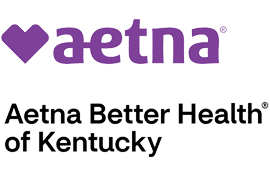
Diamond Sponsor
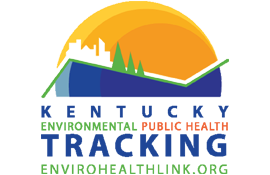
Diamond Sponsor
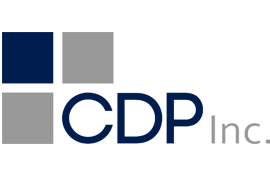
Platinum Sponsor
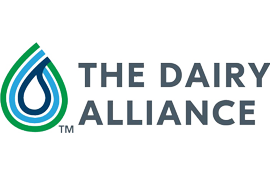
Platinum Sponsor

Platinum Sponsor
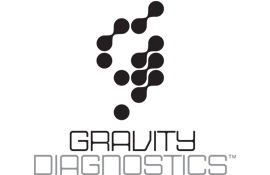
Platinum Sponsor
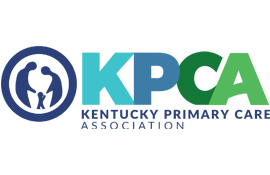
Platinum Sponsor
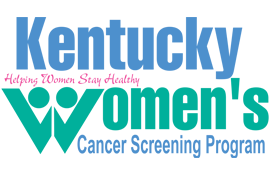
Platinum Sponsor
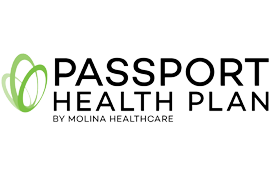
Platinum Sponsor
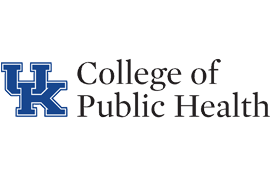
Platinum Sponsor

Platinum Sponsor

Gold Sponsor

Gold Sponsor
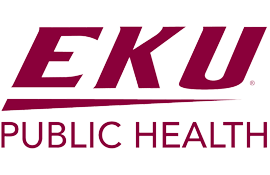
Gold Sponsor

Gold Sponsor

Gold Sponsor
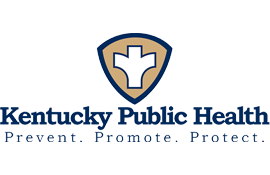
Gold Sponsor
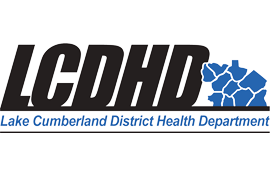
Gold Sponsor
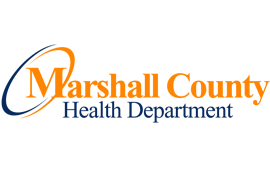
Gold Sponsor
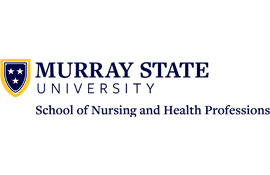
Gold Sponsor
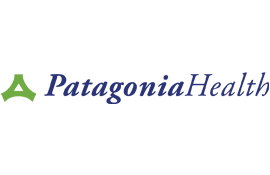
Gold Sponsor

Gold Sponsor

Gold Sponsor

Gold Sponsor

Gold Sponsor
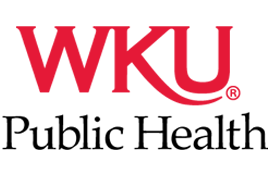
Gold Sponsor
|
WEDNESDAY, APRIL 20, 2022 |
|
|---|---|
|
8:15 AM - 10:15 AM |
Registered Sanitarian Exam Room: Crosswinds Boardroom |
|
10:00 AM - 11:30 AM |
Kentucky Association of Local Boards of Health Meeting Room: Salon B |
|
10:00 AM - 06:00 PM |
Deloitte Networking Lounge Room: Hartland Salon |
|
10:30 AM - 11:30 AM |
Most public health programs were not designed to serve children with Neonatal Abstinence Syndrome (NAS) or families with Substance Use Disorder (SUD). However, as these populations increase, programs must adapt to serve their changing audiences with respect, competence, and skill. Using an ecological model to understand the many factors that influence early childhood well-being can reduce barriers and build on existing strengths to support these families. The 2017 NAS birth cohort and their involvement with two statewide programs in Kentucky provides examples of challenges and opportunities for other public health programs. Speaker: Emily Ferrell, MPH Room: Meeting Room 1 VR Exergaming: The Virtual Highway to Health VR exergaming, a booming industry with over 200 million users worldwide, has demonstrated promise in motivating more Americans to move and exercise. The potential public health benefits of VR exergaming-facilitated exercise extend beyond addressing decrements in physical wellness experienced by countless Americans during the COVID-19 pandemic to obesity and overweight more generally. Speakers: Madeline Aulisio, DrPH; Juanita Wallace, PhD; Emily Payne Room: Meeting Room 2 Public Health Transformation...A Ramp onto the Highway to Health Kentucky’s Public Health System Is Changing is a brief video which provides a simple explanation of public health transformation. KDPH Office of Health Equity Director Vivian Lasley-Bibbs and Kentucky Public Health Commissioner Dr. Steven Stack narrate this light but informative video about the why and how of public health transformation and what we hope to accomplish throughout this journey of change. Since the passage of House Bill 129 during the 2020 Legislative Session, PHT has made steady progress toward influencing positive change in public health across the Commonwealth. This presentation will provide an overview of public health transformation and the communication tools developed to inform of the impact up to this point and offer insight into how PHT will continue to redefine Kentucky’s public health system in the future. Speaker: Jan Chamness, MPH Room: Ballroom C Creating Kentucky’s Hepatitis C Elimination Plan From coalition building to provider and laboratory surveying, strengthening partnerships, navigating engaging, virtual communication and consensus during COVID, and seeking on-the-ground expertise from individuals with lived experience, the multifaceted process of creating a Hepatitis C Elimination Plan for Kentucky has been simultaneously challenging and enlightening. Speakers: Amanda Wilburn, MPH; Dia J Obonyo, DrPH; Claire Holladay, MPH; Connor Glick, MS Room: Salon A NEHA Updates and Benefits of Being a Member TBD Speaker: D Gary Brown, Dr PH, CIH, RS, DAAS Room: Meeting Room 5 |
|
11:45 AM - 12:30 PM |
Exhibit Hall Grand Opening Room: Prefunction Area |
|
12:45 PM - 02:45 PM |
Welcome, Presentation of Colors, National Anthem, Opening Remarks, Keynote Speaker Colene Elridge, aka Coach Colene’s decade-plus of HR experience, led to her being known as “the fixer”- she’s called to help organizations and leaders create better workplaces, productive teams, and aligned results. Her career in government focused on Affirmative Action, EEO, and Diversity. She was a successful investigator of harassment and discrimination complaints and implemented strategies that resulted in more diverse and inclusive workplaces. She is the CEO of Be More Consulting, a boutique agency designed to support organizations in creating cultures of inclusion, and developing women leaders. Her first book, Monday Morning Pep Talks, was named by Success Magazine as a top book for professional women. Colene is the founder of EmpowHer Conference, a women’s leadership event that focuses on building women into leaders both at work and in their lives. Colene has a bachelor’s degree in Cultural Anthropology from Transylvania University, where she currently serves on the Board of Regents, and an MBA from Sullivan University. She loves yoga, her family, movies, and laughing! Speakers: Dr. Molly McKinney, KPHA President; Dana Nickles, KPHA Executive Director; Colene Elridge; Brittany Parker, KPHA President Elect and Conference Co-Chair; Becki Casey, Conference Co-Chair Room: Ballroom AB |
|
02:45 PM - 03:15 PM |
Break in Exhibit Hall Room: Prefunction Area |
|
03:30 PM - 04:30 AM |
Sudden Unexpected Infant Death (SUID) is one of the top causes of child fatality in Kentucky. Death scene investigation (DSI) provides the case details necessary to understand the underlying causes of SUID and areas for intervention. DSI quality has increased in recent years for SUID cases, thanks to support from the Kentucky Child Fatality Review Team. The COVID-19 pandemic critically limited this work, and as recovery continues, local health departments have an opportunity to support coroners in performing and documenting DSI to better characterize and prevent SUID. Speakers: Emily Ferrell, MPH; Lori Armstrong, MA Room: Meeting Room 2 Roadmap for Promoting Data Unity and Modernization Developing community health measurements does not have to be an uphill battle, but we know that it can certainly feel that way. Traditional measurement development strategies impose a variety of challenges to local governmental public health professionals. For example, navigation of the complicated data collection process, inconsistent data benchmarks, and expensive survey software are some of the most frequently reported issues voiced by members of NACCHO (NACCHO, 2021). In response to these ongoing issues, the Local Health Department Academy of Sciences (AOS) is committed to increasing measurement transparency through the establishment of a collaborative framework. During this session, leadership from the AOS Kentucky Group will share more about the AOS values and what we can do for you to improve efficiency and effectiveness of survey development, implementation, and data comparison at the local, state, and national level. This session will culminate with a facilitated workshop for participants, in which they will have the opportunity to review the game plan created by current AOS members and have the opportunity to provide feedback on their needs at the local or state level. Speaker: Carrie Conia, MBA Room: Salon B The MOMMA Project: Maternal Outcomes of Morbidity and Mortality in Appalachia This study elucidates social and medical determinants underlying death and severe morbidity attributable to pregnancy among Appalachian women in Kentucky. We present insights from diverse stakeholders, including patients, obstetric providers, paramedics, and emergency medical technicians. Results may inform the development of evidence-based, culturally competent interventions among this population. Speakers: Anna Hansen, MD/PhD Candidate at the University of Kentucky; Kennedy Dotson, Undergraduate Student at the University of Kentucky Room: Meeting Room 1 A college graduation represents a monumental achievement, and an opportunity to share successes with friends, mentors, and family. Many of these celebratory activities ceased in the early part of the pandemic. This session highlights the influence of the absence of celebratory activities surrounding college graduation on psychological health (anxiety, depression, and stress). Strategies for meeting the psychological needs of the 2020 college graduate population are discussed. Speakers: Lauren Roberson, PhD, MS, RD, LD; D. Gage Jordan, PhD Room: Salon A During the largest community-wide vaccination effort in history, the Bourbon County Health Department and the Paris-Bourbon County YMCA will discuss their community partnership in a mass-media campaign to increase COVID 19 vaccinations in specific populations in Bourbon County. Speakers: Andrea Davis-Viney, MPH; Drew Becket, MPH Room: Meeting Room 3/4 Legislation and Regulations 101 In this session, we will provide all of the information you have ever wanted to know about legislation and administrative regulations, including the legislative process, the difference between a statute and an administrative regulation, the regulatory process, and navigation of the Legislative Research Commission's website. Speaker: Sarah A Cooper, Deputy Executive Director OLRA Room: Ballroom C As the opioid epidemic lingers on across the country, areas have set up syringe services programs (SSPs) to combat the consequences of injection drug use. Most substance abuse research is gender neutral which makes it difficult to discern issues specifically related to females. Females who inject drugs are an underserved and marginalized population who are viewed as bridges to disease because of their involvement in multiple social networks. They endure heightened consequences associated with injection drug use. This presentation will discuss data collected from SSP staff from Kentucky and the seven bordering states about facilitators and barriers to SSP usage by females who inject drugs. Speaker: Tammi Alvey Thomas, PhD, MSSW Room: Meeting Room 5 Getting Schooled on E-Cigarettes: Kentucky’s Tobacco-Free Schools Toolkit Schools are in a uniquely powerful position to empower and protect young people from e-cigarettes and other threats to their health. With over half of Kentucky’s high schoolers having tried e-cigarettes, and more than 1 in 4 being regular users, it’s vital that teachers and school administrators have effective tools at their fingertips to prevent and address use. This session will illustrate the Kentucky Department for Public Health’s initiative to proactively mail tobacco-free schools toolkits to over one thousand schools across the commonwealth at the start of the 2021-2022 school year. Speakers: Ellen H. Cartmell, BA, MPA; Jaclyn Hodges, BS, CHES Room: Salon C |
|
04:45 PM - 06:00 PM |
Reception Hosted By University of Kentucky College of Public Health with Appetizers and Cash Bar Room: Prefunction Area |
|
THURSDAY, APRIL 21, 2022 |
|
|---|---|
|
08:00 AM - 08:30 AM |
Nurses Breakfast (Pre-registration Via TRAIN Required) Dr. Mary Bennett, Dean, WKU College of Nursing and an appointed member of the Team Kentucky’s Better Nursing Advisory Committee will present an hour-long interactive workshop on the state of the nursing shortage in Kentucky, the identified causes from state nursing surveys and the proposed solutions by various state and national representations. A short Q&A session will be held at the end of the presentation with LHD Nurse Leaders, the KDPH Director of Nursing and the Deputy Commissioner of Medical Affairs. Room: Salon B |
|
8:00 AM - 09:00 AM |
Break with Exhibitors Room: Prefunction Area Poster Presentation Room: Ballroom D |
|
8:00 AM - 06:00 PM |
Deloitte Networking Lounge Room: Hartland |
|
9:15 AM - 10:15 AM |
Keynote Address Speaker: Kaye Bender, APHA President Room: Ballroom AB |
|
10:30 AM - 11:30 AM |
Derail Depression: Kentucky on Track The 2018 Kentucky Incentives for Prevention (KIPS) Trends related to Youth and Substance Use, Mental Health, and School Safety found that 12% of eighth graders in Kentucky reported feeling depressed in the last 30 days, yet screening rates for depression remain lower than recommended by the US Preventative Services Task Force. This session reviews the success of a quality improvement initiative which improved depression screening rates in Kentucky clinics, the importance of social determinants of health when accessing depression treatment, and how COVID-19 has affected over all health in patients with MDD. Speaker: Rebecca Stachurski, MPH Room: Meeting Room 3/4 Healthy Food Transforms Communities WellCare Health Plans and the Community Farmers Market in Bowling Green, KY began partnering in 2014, working to increase healthy food access. This partnership grew in 2018 with the creation of a new program, focused on mothers to be on Medicaid: Fresh Rx for MOMs. WellCare provided the initial funding for incentives and now this grassroots program is growing to other communities, after being awarded a nearly $500,000 grant to expand. Come ready to learn about how partnerships make all the difference in transforming our communities locally. Speakers: Jennifer A. Wilson, MPH; Michelle Howell, BS Room: Salon A History of Tuberculosis: "Phthisis to Consumption" A trip through the people and places that impacted tuberculosis. Speaker: Dr. Darryl B. Barnett, Associate Professor, Associate Dean: School of Nursing and Allied Health Sciences Room: Meeting Room 5 Listening to Communities for Improved COVID Response The Louisville Metro Department of Public Health and Wellness partnered with over 20 community organizations to host mobile vaccine clinics as well as listening sessions to identify community needs during the pandemic. Learn more about how listening to the community dramatically changed the department’s pandemic response and shifted long term goals for community engagement. Speakers: Deborah Payne, MPH; Leanne French, MS Room: Meeting Room 1 African American (AA) mothers and caregivers confront myriad challenges to raising their children. Structural and systemic racism, police violence, economic insecurity, COVID, and unequal access to healthcare are added pressures these women confront. In this photovoice project, AA women utilized photography and narratives to describe their lived experiences. Using a community-based participatory research approach, researchers at Louisville worked with staff at the Bridges of Hope Neighborhood Place. African America mothers/caregivers were recruited and developed themes for their photo stories, curating and narrating their experiences. Speakers: Toluwani E. Adekunle- MA, MBA, MPH; Phd Student, School of Public Health and Information Sciences Room: Ballroom D Employment Considerations in Public Health This seminar will weave its way through the complicated issues of employment and discipline in the public health arena. It will also touch on general employment issues all managers should know, including how to prevent discrimination and/or perceived discrimination in the workplace. Speaker: Stacey Blankenship Room: Salon B Preventing Farmer Suicide through Cultural Respect and Humility As an occupational group, farmers have one of the highest rates of suicide, and unfortunately mental health providers are limited in rural areas where farmers reside. Colleagues at Western Kentucky University (WKU) created a training program to educate healthcare professionals from multiple disciplines to address these issues. This presentation describes the process and outcome of developing, implementing, and evaluating a 1-credit hour continuing education course, CRUSHing Farmer Suicide—Cultural Respect, Understanding, Sensitivity, and Humility. Speakers: Dr. Dawn Garrett-Wright, PhD, PMHNP-BC, CNE - Professor, School of Nursing and Allied Health, WKU; Dr. M. Susan Jones, PhD, RN, CNE - Professor Emerita, School of Nursing and Allied Health, WKU; Catherine Malin, MPH - Director of South Central KY AHEC Room: Salon C Weight Bias: How it Hurts and How to Help While much is known about the harmful impact of overweight and obesity, less attention is displayed to how weight bias impacts health. In this presentation learn how weight bias increases risk for overweight and negative health outcomes and how to reduce that bias in your public health work. Speaker: Elizabeth Anderson-Hoagland, MPH Room: Meeting Room 2 |
|
11:45 AM - 01:00 PM |
KPHA Awards Lunch Speakers: Eric Friedlander, CHFS Secretary; Dr. Steven Stack |
|
01:30 PM - 02:30 PM |
Building a Culture of Quality One Trained Staff Member at a Time Improve and innovate public health functions through ongoing evaluation, research, and continuous quality improvement is an essential public health service all communities should undertake. When focusing on continuous quality improvement, public health professionals in state, local, and academic agencies must first have an understanding of what this means and why it is important for public health practice. This basic understanding can be acquired through training. Speakers: Jonathan Vorbeck, MPH; Carrie Conia; Carissa Adams, MPH Room: Meeting Room 1 BATA: Bat Rabies Identification Project Over the past two years, species identification of bats submitted to the Kentucky State Public Health Laboratory (Division of Laboratory Services), for rabies testing has been conducted. Although bats have been tested for rabies for decades at the Kentucky state lab, they had not previously been identified to species. This project describes the species of bats submitted for testing, county of submission, and rabies results. Speakers: Kelly H. Giesbrecht, DVM, MPH, State Public Health Veterinarian, Kentucky Department for Public Health; Michaela Rogers, MS, Biologist, Kentucky Department of Fish and Wildlife Resources Room: Meeting Room 5 Measuring Cross-Sector Alignment with Network Analysis: Lessons from the SHERO Study The SHERO (Strengthening Health Equity in Recovery Outcomes) Study examines systems of care that serve pregnant and parenting women in recovery, specifically assessing cross-sector alignment in both rural and urban contexts. The study centers around Freedom House (FH), an evidence-based model to provide substance use treatment and parenting supports for women and their families, focusing on FH’s coordinated efforts with public health, healthcare, and social services organizations in two communities. The study is guided by the Robert Wood Johnson Foundation’s Framework for Cross-Sector Alignment and uses social network analysis to evaluate and visualize the community networks. Speaker: Madeline Shipley, BS; Stephanie Hoskins, Director of Rural Addiction Services, Volunteers of America Room: Meeting Room 2 Who pays for healthcare in Bangladesh? An analysis of progressivity in health systems financing The relationship between payments towards healthcare and ability to pay is a measure of financial fairness. Analysis of progressivity is important from an equity perspective as well as for macroeconomic and political analysis of healthcare systems. Bangladesh health systems financing is characterized by high out-of-pocket payments (63.3%), which is increasing. Hence, we aimed to see who pays what part of this high out-of-pocket expenditure. To our knowledge, this was the first progressivity analysis of health systems financing in Bangladesh. Speaker: Azaher Molla, Associate Professor, Murray State University Room: Meeting Room 3/4 Kentucky COVID-19 Mortality Analysis by Age and Race; Simpson’s Paradox The way we analyze data in public health determines the conclusions that we make and ultimately the recommendations given to key stakeholders. However, what decision should be made when a seemingly statistical impossibility occurs, what are the correct conclusions to draw? Join us for a session describing this very phenomenon that has occurred regarding COVID-19 age/race mortality data in the commonwealth. Speaker: Steven Auche, MPH, CSTE Applied Epidemiology Fellow, Kentucky Department for Public Health Room: Salon A Human Trafficking as a Public Health Issue We cannot end human trafficking through victim services alone. As an emerging public health issue, it is imperative to take an approach that involves organized, multidisciplinary strategies that aim to impact entire populations. This session will identify underlying vulnerability and protective factors, evaluate prevention strategies, and ensure widespread awareness of the issue from a public health perspective. A public health paradigm broadens our ability to address trafficking and recognize the widespread impact human trafficking has on the health and well-being of society. Speakers: Debra Hunt Young, MSW, EdS, EdD, LGSW; Kayla Thomas, BSW, BCJ, MSW Room: Ballroom C |
|
02:30 PM - 03:00 PM |
Break with Exhibitors Room: Prefunction Area Poster Presentations Room: Ballroom |
|
03:00 PM - 04:00 PM |
Medicaid‐insured youth are three times more likely to be prescribed antipsychotic medications as compared to those commercially insured, while youth in foster care are prescribed antipsychotic medications at twice the rate of other Medicaid‐insured youth. How can the system of care collaborate to reverse these trends? This presentation explores trends in antipsychotic prescribing among Medicaid-insured youth in the foster system and the application of a population health management approach with multi-modal interventions aimed to lower rates of psychotropic polypharmacy found in this population. Speakers: Kelly Pullen, LCSW - SKY Executive Director; Susan Vickers, MSW, CSW - SKY Director of Quality Improvement; Megan Johnson, APRN, FNP, CCM - SKY QM Nurse Consultant Room: Meeting Room 2 Changing the Narrative and Flipping the Script, Implementing an Equity Approach to Population Health This local health department primer is a resource with inspiring examples of how health departments can advance health equity — both internally within their departments and externally with communities and other government agencies. We will present a set of strategic practices to advance health equity in local health departments to advance their current practice towards health equity. There are examples and case scenarios and other resources and tools, to start conversation and initiate change as LHD’s work toward infusing equity across programs and operations. As Dr. Renee Canady stated, doing health equity work is like trying to get to the middle of a pool — it doesn’t matter where we dive in, as long as we dive in. Regardless of where we start with these transformative and strategic practices, the most important thing is to dive into the pool! Speakers: Jennifer Robinson, MA, Health Education Coordinator, Franklin County Health Department; Vivian Lasley-Bibbs, MPH, Director, Office of Health Equity, KY Dept. for Public Health Room: Ballroom C In 2020, Governor Brashear appointed members throughout the state to serve on the Kentucky Eating Disorder Council for the purpose of overseeing the development and implementation of eating disorder awareness, education, and prevention programs. This session will summarize the Council's activities as well as address the importance of identifying eating disorders, strategies for prevention, and various treatment options for those in need of services in Kentucky. Speaker: Laurie J. Larkin, MS, PhD Room: Meeting Room 5 We believe that we will win: Reaching youth for vaccine confidence Learn from the adventures of a local health department working on messaging to increase COVID-19 vaccine confidence among youth in our small, rural, wary Appalachian community. Assess the community; it’ll be easy. Build partnerships; it’ll be fun. Communicate clearly; what could go wrong? Speakers: Marcy Rein, RN MPH; Ashley Lawson, BS Room: Salon B This session will contain a demonstration of the ESSENCE platform using Syndromic Surveillance. The presentation will showcase several pre-built queries related to summer and winter environmental health hazards. An R script will show how the ESSENCE query builder’s API URL is connected to generate reports and display trend lines and slopes for inpatient and emergency department encounters across the state of Kentucky. Speaker: John Prather, MBA, Syndromic Surveillance Coordinator Room: Meeting Room 3/4 While there is abundant research regarding African American HIV rates, there are no known studies in the state of Kentucky that have focused on African American college students and HIV testing in current literature. This session will cover a cross-sectional study that was conducted at a Predominately White Institution in the state of Kentucky to compare barriers and facilitators to HIV testing in African American and Non-African American Kentucky college students. This presentation will include an in-depth analysis of a study, including HIV information and literature, as well as the methodology and results of conducting adequate research. Speaker: Kendra Helm, MPH Room: Salon C Drivers for Change in the Future of Healthcare Healthcare systems, practices and clinicians are stepping into a future that moves beyond monitoring quality and financial performance and into improving patient outcomes. The future of healthcare is in leveraging technology and resources to address the whole patient, reduce barriers to care, implement chronic care models, increase innovation and navigate reporting transparency. To be successful in value-based care, addressing social determinants is critical to creating sustainable healthcare. Speakers: Robin Curnel; Kelly Fountain, MPA Room: Meeting Room 1 Creating a student centered public health practice experience with your area health department. Interested in training the next generation of public health professionals? Learn how to create a dynamic student practice experience with your area health department. Speakers: Linda Omer, PhD; Tammi Alvey Thomas, PhD, MSSW Room: Salon A |
|
04:00 PM - 04:15 PM |
Break in Exhibit Hall Room: Prefunction Area |
|
04:15 PM - 05:15 PM |
Legislative Panel: Featuring Julie Babbage, Rebecca Hartsough, and Legislators Room: Ballroom AB |
|
FRIDAY, APRIL 22, 2022 |
|
|---|---|
|
08:30 AM - 12:00 PM |
Deloitte Networking Lounge Room: Hartland Salon |
|
08:30 AM - 09:30 AM |
Technology Today for a Healthy Tomorrow People in recovery from opioids face social and lifestyle challenges outside of their medical recovery, especially if they are pregnant or have recently been pregnant. One way to support them through these challenges is through health education using innovative technology. This interactive session focuses on supporting individuals with opioid use disorder who are pregnant or who have recently been pregnant through the use of technology instead of 'just another brochure.' Participants of this session will understand the importance of health education using multiple learning strategies in supporting individuals with opioid use disorder. Speakers: Megan Wilkinson, MA Medical Anthropology; Nicole Fairchild, MPA, MBA Room: Salon A Qualitative Assessment of Prenatal Care and Prenatal Care Access in Louisville / Jefferson County In 2020, the Ready for K Alliance commissioned a qualitative research project from the Center for Health Equity at Louisville Metro Department of Public Health and Wellness to better understand the experiences of new parents in Louisville / Jefferson County in accessing prenatal care. The information gathered will be used to inform local and state policymakers, along with policies and practices of OB hospitals and maternal supporting community organizations to best allocate resources and assets to provide greater access to culturally competent prenatal care for all Louisville Metro residents. In this session, researchers discuss the research process, lessons learned, and their partnership with Ready for K. Speakers: Trey Allen, PhD - Epidemiologist - Center for Health Equity; Oluwatomisin A. Ogungbenle - Student Intern - Center for Health Equity; Michele Ledbetter - Student Intern - Center for Health Equity Room: Meeting Room 2 Stop the Insanity: Cultural Humility as a Viable Alternative to Cultural Competence As organizations wrestle with finding ways to create climates that embrace multiple experiences and expressions of culture, engaging the tried and true consistently leads to frustration and failure. Though it feels like a complexity too difficult to conquer, the solution is as simple as embracing curiosity, committing to lifelong learning and finding our individual and collective voices. Stopping the Insanity discusses the experience of a pilot training program conducted by Spalding University's School of Social Work for the Department of Public Health's BREATH program focusing on Cultural Humility as an effective alternative to cultural competence. Experiences and implications for future work will be shared along with a brief discussion of basic components of the model. Speaker: Dr. Shannon Emory Cambron, EdD, MSW Room: Meeting Room 1 KDPH Health Transformation and Health Equity in Transportation Kentucky and Kentuckians needs your help! You have the power to change our transportation system to include more and better accommodations for people to walk and bicycle to everyday destinations. It doesn't change unless people and organizations like you get involved. Speaker: Troy Hearn Room: Ballroom AB Adapting Outreach Services: Discreet HIV Testing for Rural Kentucky MSM Populations & More The Target4 project with the Kentucky Income Reinvestment Program (KIRP) has developed unique outreach strategies to better serve rural MSM populations impacted by cultural, geographic, and resource-related barriers to HIV testing. Panelists will review the project’s discreet testing campaign for rural MSMs, findings, and initiatives developed out of these efforts. Speakers: Jim Thacker, MPH; Chelsey Reid, MPH; Laura Nagle Room: Salon C |
|
09:45 AM - 10:45 AM |
KPHA Business Meeting Room: Ballroom AB |
|
11:00 AM - 12:00 PM |
Closing Keynote: Recovery Capital: Assets, Not Abstinence What do people need to recover from addiction? The purpose of this workshop is to describe recovery capital as a predictor of long-term addiction recovery. In part one, we begin by characterizing substance use disorder (SUD) as a chronic condition. In part two, we lean into the complexity of the heterogeneity of SUD and recovery as a process of change. Finally, in part three, we focus on building community recovery capital to promote recovery in our communities. Speaker: Alex Elswick, PhD, Assistant Extension Professor, Substance Use Prevention & Recovery Room: Ballroom AB |